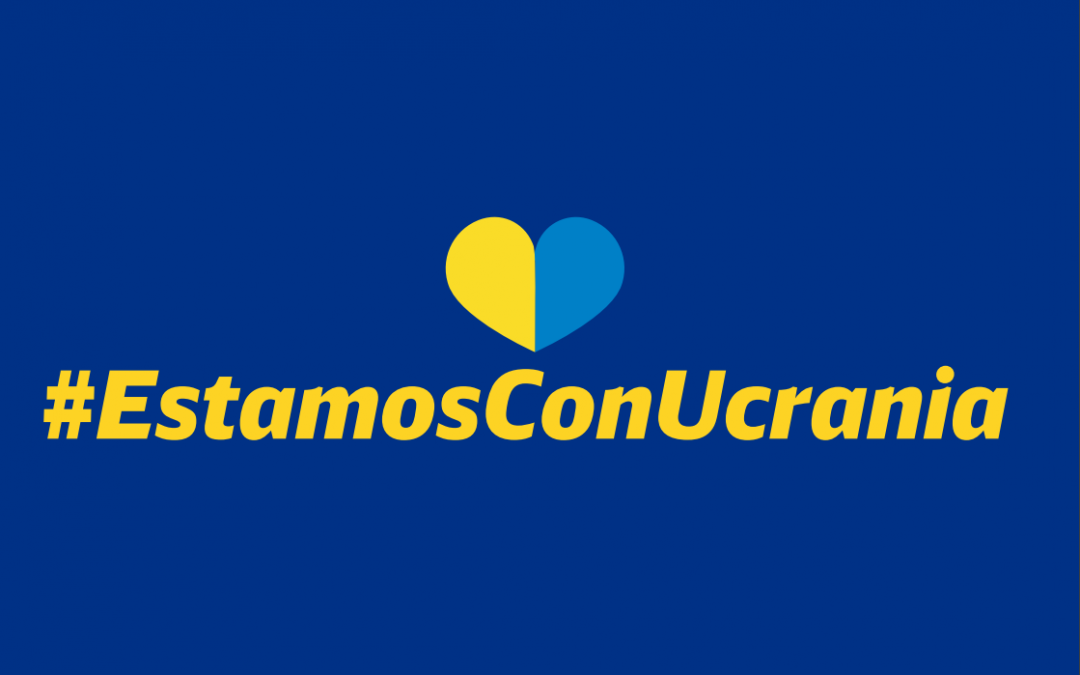- The train transfer of the first 400,000 kilos of humanitarian aid to Ukraine will be carried out in collaboration with DB Cargo, a German railroad company and main shareholder of Transfesa Logistics.
- The initiative has already been joined by several companies in the transport sector such as MSC and Grupo Alonso and the Community of Madrid and is open to the participation of other companies and institutions.
- If the pace of donations continues and there is still a need for transport, the corridor will remain in operation.
Transfesa Logistics, Spain’s leading private rail operator, will send this morning the first train with 400,000 kilos of goods from Isabel Zendal Hospital to Ukraine linking our country to the solidarity corridor already launched by DB Cargo from Germany.
This first train will transport, in a single trip, 21 containers with donations from different NGOs, municipalities and institutions, channeled through the Community of Madrid, which has ceded the storage space of the Zendal Hospital, becoming an aid center in coordination with the Embassy of Ukraine. The 5,000 square meter hospital warehouse is a consolidation point for donations from organizations and institutions and has already handled almost 400 tons of humanitarian aid.
Idoia Galindo, member of the Executive Committee of Transfesa Logistics and responsible for leading the implementation of this initiative, emphasizes that “it is a rail corridor that reaches several cities in Ukraine and that we have made available to all those companies, NGOs or institutions that may need to transport humanitarian aid. We believe it is important for them to know that this corridor exists and that they can use it, since right now the train is the only alternative for getting food, medicines and other basic necessities to many Ukrainian populations. We also invite all companies and institutions to collaborate with this humanitarian corridor in order to keep it running for as long as possible”.
This operation has already been joined by Renfe, which provides this solidarity corridor with traction in Spain, wagons and containers; MSC, which provides 20 containers; and Grupo Alonso, which carries out the container transshipment operation at its Silla Intermodal Terminal. Transfesa – DB Cargo, organizes the operation, provides traction in France, Germany, Poland and Ukraine, wagons, containers, trucks, warehouses and the operation of changing wagon axles, both at the Spanish-French and Polish-Ukrainian borders.
Bernd Hullerum, CEO of Transfesa Logistics states that “we are proud to join this railway bridge that is allowing us to help the victims of the war in Ukraine. I would like to thank all the companies and colleagues who have made this solidarity train a reality.” He adds that “we will continue to help through the railroad which, once again, proves to be essential in emergency situations such as this one.”
This new corridor is available to ONGs, institutions or companies that have large volumes of donations and will allow transporting all this wave of solidarity, freeing up space in Spanish warehouses to continue receiving donations and managing to get the aid directly to Ukraine, since the railroad is the only means of transport that right now is being able to enter many areas of the country. In addition, this train will be able to transport the equivalent of 21 trucks, which simplifies and accelerates the arrival of humanitarian aid to the Ukrainian population.
The operation will be carried out as follows: donations are loaded into containers that are transported by truck from where they are stored (in this first train, it is the Zendal Hospital) to the railway terminal in Madrid where they are loaded onto the train, the means by which they arrive in Ukraine. The train makes a stop in Germany, where it joins DB Cargo’s solidarity corridor, which is already in operation, carrying humanitarian aid from different European countries to various points in Ukraine.

